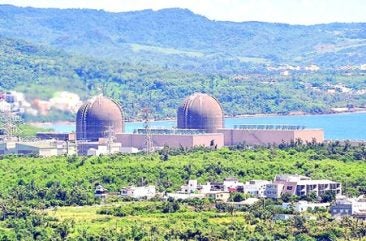
Lawmakers from Taiwan’s Chinese Nationalist Party (KMT) have proposed five amendments that would remove the “nuclear-free homeland” target in national policy. In 2016, Taiwan’s Democratic Progressive Party (DPP) was elected on a platform of establishing a “nuclear-free homeland” by 2025. This required Taiwan’s six operable power reactors to be decommissioned when their 40-year operating licences expired and was passed into law as an amendment to the Electricity Act. Although a referendum in 2018 obliged the government to cancel the amendment, the policy has remained in effect.
Taiwan had three NPPs, each with two units, at Chinshan, Kuosheng and Maanshan and two others under construction at Lungmen. Chinshan 1 was closed in December 2018, followed by Chinshan 2 in July 2019. Kuosheng 1 was closed in May 202, six months before its licence expired, after plant owner/operator Taipower said its used fuel storage was almost full. The operating licences of the two 936 MWe pressurised water reactors at Maanshan are due to expire in 2024 and 2025. Construction of two units at Lungmen has been suspended.
The opposition lawmakers have proposed several changes to Article 23 of the Basic Environment Act which mandates the government to “formulate a plan to progressively achieve the goal of a non-nuclear homeland”. The bills offer slightly different wording options, such as calling for a “zero-carbon homeland” or “utilising nuclear energy to decarbonise.”
KMT Legislator Weng Hsiao-ling’s amendment would require the government to “formulate a plan to progressively achieve the goal of net zero emissions”.vAnother version supported by KMT legislators Lai Shyh-bao and Chang Chih-lun says the government “should reduce and manage greenhouse gas emissions in response to climate change, and progressively achieve the goal of a zero-carbon homeland”. Legislator Su Ching-chuan proposed mandating the use of nuclear power as an element of the government’s energy policy. This also would add a provision to Article 28 offering health exams and compensation to people harmed by environmental pollutants.
However, Premier Cho Jung-tai recently told lawmakers that his Cabinet “has no plans” to amend regulations that would have paved the way for the continued operation of Taiwan’s only operational NPP, Ma-anshan. The NPP will be decommissioned after the operating licences of its two reactors expire in July and in May next year. Nuclear power represented 6.3% of Taiwan’s energy mix last year, while fossil fuels accounted for 83.1% and renewables for 9.5%.






